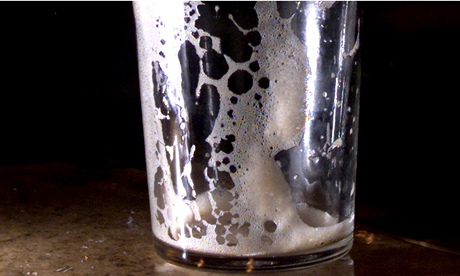
Access Visit
Your afternoon pint; my Britvic pineapple juice;
a bag of prawn cocktail gaping in the middle.
The lounge at the Wig & Mitre was Daddy’s choice.
And then, at six, my taxi home; a cuddle
before I left you waving at the corner,
bound for my mother, our monthly weekend over.
And she would always seem a little warmer
than when I’d left, and I’d be slightly colder.
How could I know what an alcoholic was?
The Wig & Mitre’s now Widow Cullen’s Well.
The snugs have been pulled out, the walls made bare;
but the place still has the same sweet, musty smell,
and I’m going in for a drink again because
I know I’ll find a part of us in there.
Growing up between “two countries, two cultures, two parents”, Rory Waterman deploys the grace and tact of the emotionally bilingual in his first collection Tonight the Summer’s Over. His speaker in this week’s poem, Access Visit, carries off various balancing acts. He’s initially an adult reliving a childhood experience in which the child behaves like a small grown-up; then he’s an adult helplessly gripped by a childlike need.
Early recollections in contemporary poetry often push the child, hot, sticky and unruly with imagination, into the present tense, forcing the reader to share the perspective unmediated. But Waterman reminisces in a relatively restrained past tense, and the childhood viewpoint is sensitively positioned – not wholly inhabited, but not wholly distanced by an adult speaker, either. At the end of the octet, the depiction of a tiny but significant shift in the dynamics of the relationship between the returning son and his mother, suggests that the child himself, with unusual maturity, has observed the change: “And she would always seem a little warmer/Than when I’d left, and I’d be slightly colder.”
The encapsulating form chosen for Access Visit, the sonnet, seems to reflect the “snug” which is at the heart of the narrative, and a metaphor of the security which both releases and contains emotion. This emotion is manifest rhythmically, through triplet patterns frequently augmenting the metre with a faintly disruptive hop-and-skip: “your afternoon pint”, “the lounge at the Wig & Mitre”, “bound for my mother”, “going in for a drink”.
The syntax is informal at the beginning, with parataxis in lines one and two (echoed also in line four) providing a narrative jump-start. The close-up of the pub table shows three items – two age-appropriate drinks and a bag of prawn cocktail crisps – items that are presented with a casual metonymic force that’s reminiscent of Philip Larkin. (In fact, Access Visit has similar strengths to Larkin’s Friday Night at the Royal Station Hotel).
That the father’s pint is an “afternoon pint” will turn out to be significant. The child’s choice, slightly exotic, suggests the father has introduced an element of the special “grown-up” treat, or that the boy is playing up to a youthful notion of sophistication. The crisp bag is strategically placed, so its sweet-sour contents can be shared, but the fact that it’s “gaping” suggests something unhealed, hollow, wound-like. What the son and father also share is characterised by lack.
Assuming that the poem’s addressee is the father, there’s a shift from third person to second between lines three and five: “Daddy’s choice” and “Before I left you, waving at the corner”. The agility of the child’s diction is registered. “Daddy’s choice” is the formal description: it might be an objective statement of fact, or imply, faintly, someone else’s disapproval, echoed by the child. “Mother” belongs to the more formal register, “cuddle” to the informal. The fluidity reflects the child’s skill at verbal camouflage.
The first line of the sestet floats the suggestion that the father is an alcoholic, without pinning anything down: rather, what it denotes is that there were adult mysteries beyond the child’s vocabulary and understanding. Poignancy accrues because, earlier, the boy has seemed so grown up, composed and equal to his precociously adult settings. The almost rhetorical question, “How could I know what an alcoholic was?” seems to burst out like a rebuke to the whole situation, and the large, unreasonable demands it had made all along.
In the sestet, the tense changes to the present. Time has passed: the pub has a new name (more feminine and evocative, less redolent of authority) and modernisation has destroyed the snug. But the speaker rejects this process as a metaphor of psychological growth, and insists on the continuing connection to his past. This past, like the “sweet, musty smell”, resists modernisation, and the speaker is “going in for a drink again” not just as a defiant, fatalistic gesture of solidarity with his father but in search of imaginative reunion. It is an “access visit” across time. In 10 monosyllables of precise iambic pentameter, the now-perhaps-unreliable narrator persuades himself, “I know I’ll find a part of us in there”. And so perhaps he will: the poem makes few moral judgements, takes no sides.

